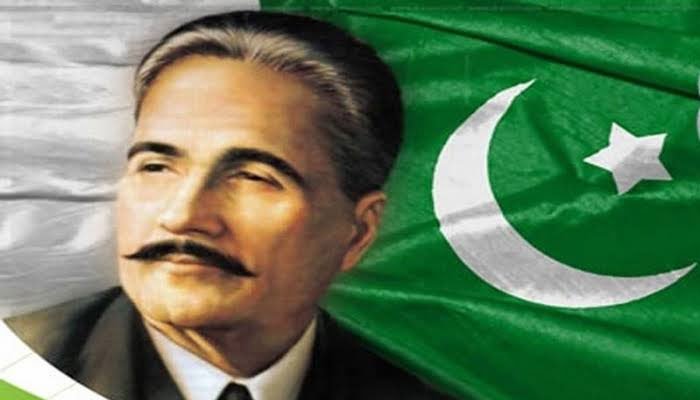Today is the 144th birth anniversary of poet Allama Muhammad Iqbal who penned the popular “Saare Jahan se Accha” song, sung religiously to evoke patriotism. While many associate Iqbal with the song only, not many know that he was the first one to conceive a separate nation for the Muslim ‘minority’.
Iqbal’s grandparents were Kashmiri Pandits, and his father ‘Rattan Lal’ served as a revenue collector and was accused of siphoning funds. The Afghan governor gave him a chance to become a Muslim with the other choice being ‘Zannat’. The wise Rattan chose life and married one Punjabi lady Imam Bibi.
As is the norm, the first-generation offspring became more fundamentalist than the originals – the zeal of a fresh convert, as we like to call it. Soon, Muhammad Iqbal became ‘Allama Iqbal’ and was the first to seek a ‘separate country’ for the Indian Muslims.
It was on 29th December 1930 that Iqbal spoke about the need for a separate Muslim nation, in the Presidential Address in the 25th session of All India Muslim League in Allahabad. He laid foundations by distinguishing between Christianity and Islam.
Preaching his fundamentalism
He explained that, unlike the way Christianity was treated in Europe as a monastic order, the Prophet’s religious experience was mystical. Perhaps, it explains Iqbal’s insistence to use mystics as an essential part of his writings. According to Iqbal, Christianity tries to live its ideals at the cost of the real situation, whereas Islam searches to unite reality and ideals in a continuous process.
He believed that religion has the utmost importance in the life of individuals as well as states, and Islam in itself is destiny. Iqbal was convinced to preach nothing but original, ‘Arabic’ Islam to the masses.
Read More: Seemingly Secular Jinnah, Islamist Iqbal, Confused Ali and the birth of moth-eaten Pakistan
Iqbal also remarked it was his duty, according to the teaching of the Quran, to defend their places of worship, if need be. He also stated, “Yet I love the communal group which is the source of my life and behaviour; and which has formed me, what I am, by giving me its religion, its literature, its thought, its culture, and thereby recreating its whole past as a living operative factor, in my present consciousness”.
Iqbal linked culture with communalism and expressed, “…without full cultural autonomy, it is difficult to create a harmonious nation. So, it is imperative to have an exclusive Muslim nation.”
Iqbal demanding Pakistan
Iqbal proposed “I would like to see the Punjab, North-West Frontier Province, Sind and Baluchistan amalgamated into a single State. Self-government within the British Empire, or without the British Empire, the formation of a consolidated North-West Indian Muslim State appears to me to be the final destiny of the Muslims, at least of North-West India”.
It was Iqbal who successfully pulled back Jinnah into mainstream Muslim politics. No sooner did Jinnah join mainstream politics, he started the fight for Pakistan and, was eventually successful in mobilizing the majority of Muslims, paving way for the two-nation theory to come to fruition.
Read More: Legacy of Jinnah: Partition, plunder and birth of Pakistan
Thus, those eulogizing Iqbal on his birth anniversary, based on a solitary song should pause a second and go through his life records, for he was a staunch fundamentalist, working through for the cause of radicals of the community.
